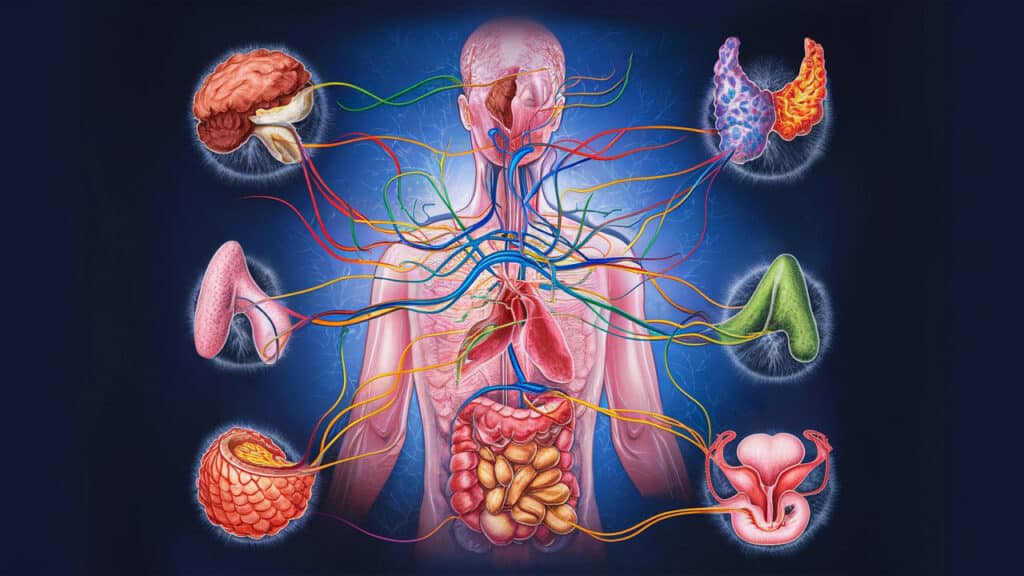A well-balanced diet is essential for maintaining optimal health, yet many people unknowingly suffer from nutritional deficiencies. These deficiencies can lead to various physical and mental health issues. Identifying the warning signs can help you adjust your diet and lifestyle to support better health.
Understanding Nutritional Deficiencies
Nutritional deficiencies occur when the body lacks essential vitamins and minerals needed for normal functioning. Poor diet, malabsorption issues, chronic illnesses, and certain medications can contribute to deficiencies.
Common Causes of Nutritional Deficiencies
- Poor diet choices – Processed foods and lack of fresh fruits and vegetables.
- Digestive disorders – Conditions like celiac disease and Crohn’s disease can hinder nutrient absorption.
- Restricted diets – Vegan, vegetarian, and low-carb diets may lack essential nutrients.
- Aging – Nutrient absorption declines with age, affecting calcium, vitamin D, and B12 levels.
- Chronic stress – Depletes key nutrients like magnesium, B vitamins, and vitamin C.
- Alcohol and smoking – Reduce the absorption of essential nutrients.
- Medications – Some prescription drugs can lead to deficiencies.
Recognizing the symptoms of deficiencies is key to preventing long-term health complications.
Common Signs of Nutrient Deficiencies
1. Eyes
- Dark circles or bags under the eyes – Possible dehydration or food intolerances.
- Poor night vision – Could indicate a Vitamin A deficiency.
- Ruptured blood vessels in the eyes – May suggest low Vitamin C levels.
- Nearsightedness (Myopia) – Possibly related to Vitamin D deficiency.
- Pale lower eyelid – Often a sign of iron deficiency.
How to Fix It:
- Eat Vitamin A-rich foods (carrots, sweet potatoes, liver).
- Consume Vitamin C sources (citrus fruits, bell peppers, strawberries).
- Get Vitamin D from sunlight, fortified foods, or supplements.
- Increase iron intake with spinach, lentils, and lean red meat.
2. Teeth & Gums
- Bleeding gums – Linked to Vitamin C and folic acid deficiency.
- Weak enamel or crowded teeth – May indicate low Calcium and Vitamin K levels.
How to Fix It:
- Consume citrus fruits and leafy greens for Vitamin C.
- Include dairy products, almonds, and greens for Calcium and Vitamin K.
- Maintain proper oral hygiene.
3. Hair
- Hair loss – Linked to Vitamin B2, B5, Biotin, D, and Zinc deficiencies.
- Dry, brittle hair – May indicate low Vitamin A, E, Omega-3s, or Protein.
- Dandruff and flaky scalp – Could be due to Selenium or Omega-3 deficiency.
How to Fix It:
- Include nuts, seeds, eggs, and fish in your diet.
- Increase Omega-3s with fatty fish or flaxseed oil.
- Use natural oils like coconut and castor oil for hair health.
4. Nails
- Spoon-shaped nails – May indicate low B12 and Iron.
- White marks on nails – Could be a sign of Calcium or Zinc deficiency.
- Brittle nails – May result from low Calcium, Magnesium, and Iodine.
How to Fix It:
- Eat lean meats, nuts, dairy, and eggs.
- Take biotin supplements if necessary.
- Keep nails moisturized and avoid excessive chemicals.
5. Emotional & Mental Health
- Depression and mood swings – Linked to B1, B5, Biotin, and Omega-3 deficiencies.
- Memory loss and brain fog – Often associated with B1, B3, B12, or Folic Acid deficiencies.
- Nervousness and irritability – Can result from low B1, B6, or B5 levels.
- Insomnia and poor sleep – May be due to low B3, B5, B6, or D3 levels.
- Dizziness – Could indicate low Iron, B2, or B12 levels.
How to Fix It:
- Take a Vitamin B-complex supplement for brain function.
- Consume iron-rich foods like spinach, beans, and lean meats.
- Get adequate sun exposure or take Vitamin D supplements.
- Practice stress-reducing activities like meditation and exercise.
Preventing Nutritional Deficiencies
To prevent nutrient deficiencies, consume a balanced diet rich in whole foods, vitamins, and minerals.
Simple Tips:
- Eat a diverse diet – Include fruits, vegetables, proteins, and healthy fats.
- Consider supplements – If you suspect a deficiency, consult your doctor.
- Stay hydrated – Reduce excessive caffeine or alcohol intake.
- Limit processed foods – Focus on nutrient-dense meals.
- Listen to your body – Fatigue, hair loss, skin issues, and frequent illness could signal missing nutrients.
By recognizing these signs early and making dietary adjustments, you can enhance your health, boost energy levels, and improve overall well-being.





















